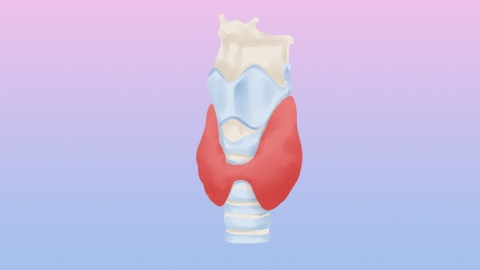What are the symptoms of hyperthyroidism?
Generally, hyperthyroidism refers to an overactive thyroid gland, with symptoms including excessive sweating and heat intolerance, palpitations and hand tremors, changes in appetite, exophthalmos (protruding eyes), and emotional fluctuations. Detailed explanations are as follows:

1. Excessive Sweating and Heat Intolerance
Excessive secretion of thyroid hormones accelerates the body's metabolic rate and increases heat production, causing patients to sweat more easily and feel heat more acutely than normal individuals. Even in cool environments, they may often perspire heavily, with symptoms possibly becoming more pronounced during hot seasons.
2. Palpitations and Hand Tremors
Thyroid hormones enhance myocardial contractility and accelerate heart rate. Patients may distinctly feel palpitations, with heart rates frequently exceeding the normal range. At the same time, increased nervous system excitability causes involuntary hand tremors; in severe cases, even fine motor tasks like holding chopsticks or writing may become difficult to perform.
3. Changes in Appetite
When thyroid function is hyperactive and excessive thyroid hormones are secreted, the body's metabolism significantly accelerates, greatly increasing cellular energy demands. This leads to frequent feelings of hunger, resulting in a heightened appetite and markedly increased food intake.
4. Exophthalmos (Protruding Eyes)
The thyroid and orbital tissues may share common antigenic components. When the body's immune system becomes disordered and produces autoantibodies targeting the thyroid gland, these antibodies may also attack orbital tissues, triggering inflammatory reactions. Inflammation leads to proliferation of orbital fat tissue and swelling of the extraocular muscles, increasing the volume of orbital contents. Since the orbital space is limited, the eyeball is subjected to forward pressure, causing it to protrude.
5. Emotional Fluctuations
Affected by thyroid hormones, patients' emotional states become highly unstable, easily leading to irritability, anger, anxiety, tension, and other emotional changes. Patients may become extremely angry over trivial matters and may also experience sleep disturbances such as insomnia and vivid dreams, further affecting emotional well-being and quality of life.
In daily life, it is important not to consume high-iodine foods, such as seaweed, laver, and other seafood products, excessively or over long periods. However, completely avoiding iodine-containing foods is also not advisable; maintaining a balanced iodine intake is essential. Additionally, engaging in regular physical exercise, such as jogging or yoga, can help improve physical fitness and enhance immunity.







